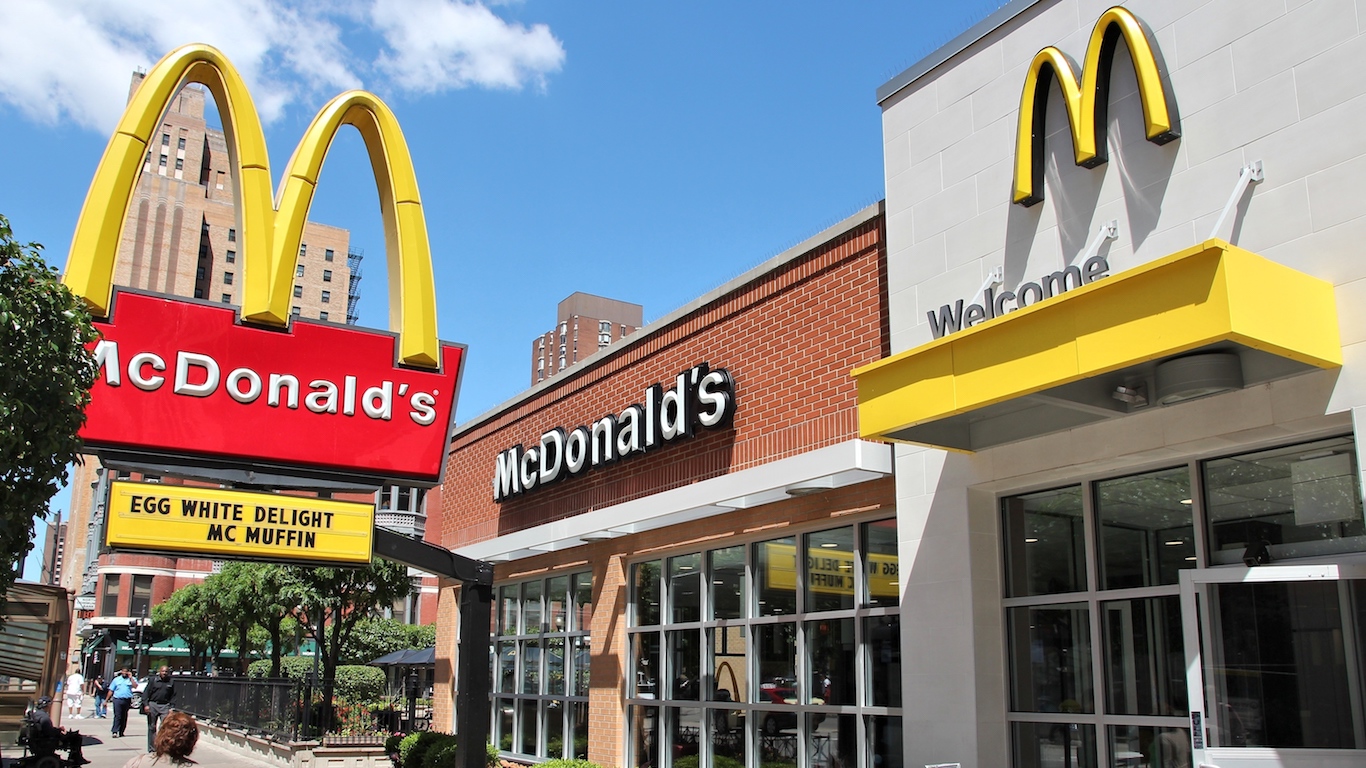
Did investors sell in May and go away, even in the face of increasing fears of trade wars with China and U.S. allies, not to mention the specter of rising interest rates? The Nasdaq, the Dow Jones industrial average and the S&P 500 did all lose some ground last month, as there were few earnings reports to help buoy them. That will soon change, for better or worse.
Judging by the most shorted stocks traded on the New York Stock Exchange between the June 15 and June 29 settlement dates, those sellers were focused on a couple of favorites. Otherwise moves among these stocks were mixed and mild.
Note that the five most shorted NYSE stocks still had more than 130 million shares short at the end of the most recent settlement period. In fact, all the top 10 had short interest of more than 110 million shares.
Rite Aid
The reported number of Rite Aid Corp. (NYSE: RAD) shares sold short grew from more than 158.84 million to nearly 168.15 million as of the most recent settlement date, lifting it two spots to the top of the list. That was 16.0% of the company’s total float and the highest level of short interest so far this year. The average daily trading volume surged during the period, and the days to cover figure shrank from about 14 to six.
Late in the month, Rite Aid posted quarterly results that were deemed “good enough.” Its share price rose more than 34% but ended only about 10% higher during those two weeks. In the past week, the stock is down fractionally, and it closed most recently at $1.68 a share. That was more than 21% lower compared with the beginning of the year. Rite Aid shares have traded between $1.38 and $2.80 apiece in the past 52 weeks.
Chesapeake Energy
The number of Chesapeake Energy Corp.’s (NYSE: CHK) shares short declined more than 6% in the most recent period, but this oil and gas company stayed in the number two spot on the list. The reported short interest of about 159.52 million shares was 17.8% of the total float, and it was the fifth time since mid-February that the total was less than 200 million. At the posted daily average trading volume on the settlement date, it would take about five days to cover all the short positions.
Natural gas inventories were increasing again during the latest short interest period, and Chesapeake’s share price ended those two weeks more than 15% higher than where it began. The S&P 500 was down fractionally between the settlement dates. The stock has risen more since then, and it ended trading at $5.15 a share on Wednesday. That is more than 20% higher year to date. Shares have changed hands as high as $5.60 and as low as $2.53 in the past year.
J.C. Penney
The number of J.C. Penney Co. Inc. (NYSE: JCP) shares short grew by more than 4.6 million in the latest period to over 138.92 million. Short interest has increased in three of the past four periods and was a whopping 47.4% of the struggling retailer’s float most recently. The daily average trading volume shrank during the two-week period, so the days to cover grew from about nine to 10.
The struggling retailer finally got around to selling corporate jets in June. Its share price ended the short interest period down more than 4%, though it had been nearly 23% higher at one point. The stock has retreated more than 2% in the past week and closed most recently at $2.37 a share. That is over 33% lower than at the beginning of the year. The 52-week low, seen back in May, was $2.25, while the 52-week high of $5.63 was reached last summer.
Sprint
Sprint Corp. (NYSE: S) took back the less than 2% gain in short interest in the previous period with a retreat of about 5% in the latter two weeks of last month. That was over 7 million shares less during that period to more than 136.80 million, which was 23.5% of the telecom’s total float. The days to cover remained about 13 even as the daily average volume slipped to a year-to-date low.
Some still see Sprint stock as a bargain with big upside potential. The stock ended the latest short interest period more than 4% higher, much of that gain early in the period, and it climbed another 5% afterward. The shares closed most recently at $5.50 apiece, which still is down almost 7% year to date. They hit a 52-week high of $8.92 last August, which compares to the 52-week low of $4.81 seen back in March.
General Electric
After growing in the prior two periods, General Electric Co. (NYSE: GE) saw the number of its shares tumble about 13% in the final two weeks of June. The more than 130.18 million shares reported most recently was the lowest short interest since early this year, and it represented 1.5% of the conglomerate’s total float. The daily average trading volume grew notably, and the days to cover ticked down to about one.
GE was ousted from the Dow Jones industrial average in the latest short interest period. The stock ended the two weeks down more than 3%, though it was almost 10% lower at one point. In those two weeks, the Dow pulled back only fractionally. GE’s share price was last seen at $3.99, which compares with a recent 52-week low of $12.61. The 52-week high, reached almost a year ago, was $27.05 a share. The stock now is about 23% lower year to date.
And the Rest
Rounding out the top 10 were Alibaba Group Holding Ltd. (NYSE: BABA), Weatherford International PLC (NYSE: WFT), Ford Motor Co. (NYSE: F), Bank of America Corp. (NYSE: BAC) and Snap Inc. (NYSE: SNAP). While Weatherford saw an almost double-digit drop, short interest in the others was little changed.
Note that perennial short seller favorite AT&T Inc. (NYSE: T) slipped out of the top 10 most shorted NYSE stocks list with a more than 50% retreat in the number of its shares short. Lingering along with it outside of the spotlight of the top 10 were telecom CenturyLink Inc. (NYSE: CTL) and offshore driller Ensco Corp. (NYSE: ESV).
It’s Your Money, Your Future—Own It (sponsor)
Are you ahead, or behind on retirement? For families with more than $500,000 saved for retirement, finding a financial advisor who puts your interest first can be the difference, and today it’s easier than ever. SmartAsset’s free tool matches you with up to three fiduciary financial advisors who serve your area in minutes. Each advisor has been carefully vetted and must act in your best interests. Start your search now.
If you’ve saved and built a substantial nest egg for you and your family, don’t delay; get started right here and help your retirement dreams become a retirement reality.
Thank you for reading! Have some feedback for us?
Contact the 24/7 Wall St. editorial team.

 24/7 Wall St.
24/7 Wall St.



